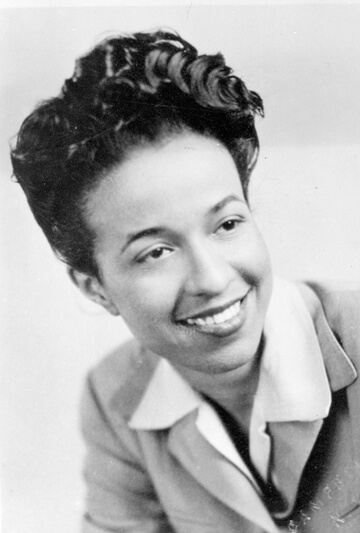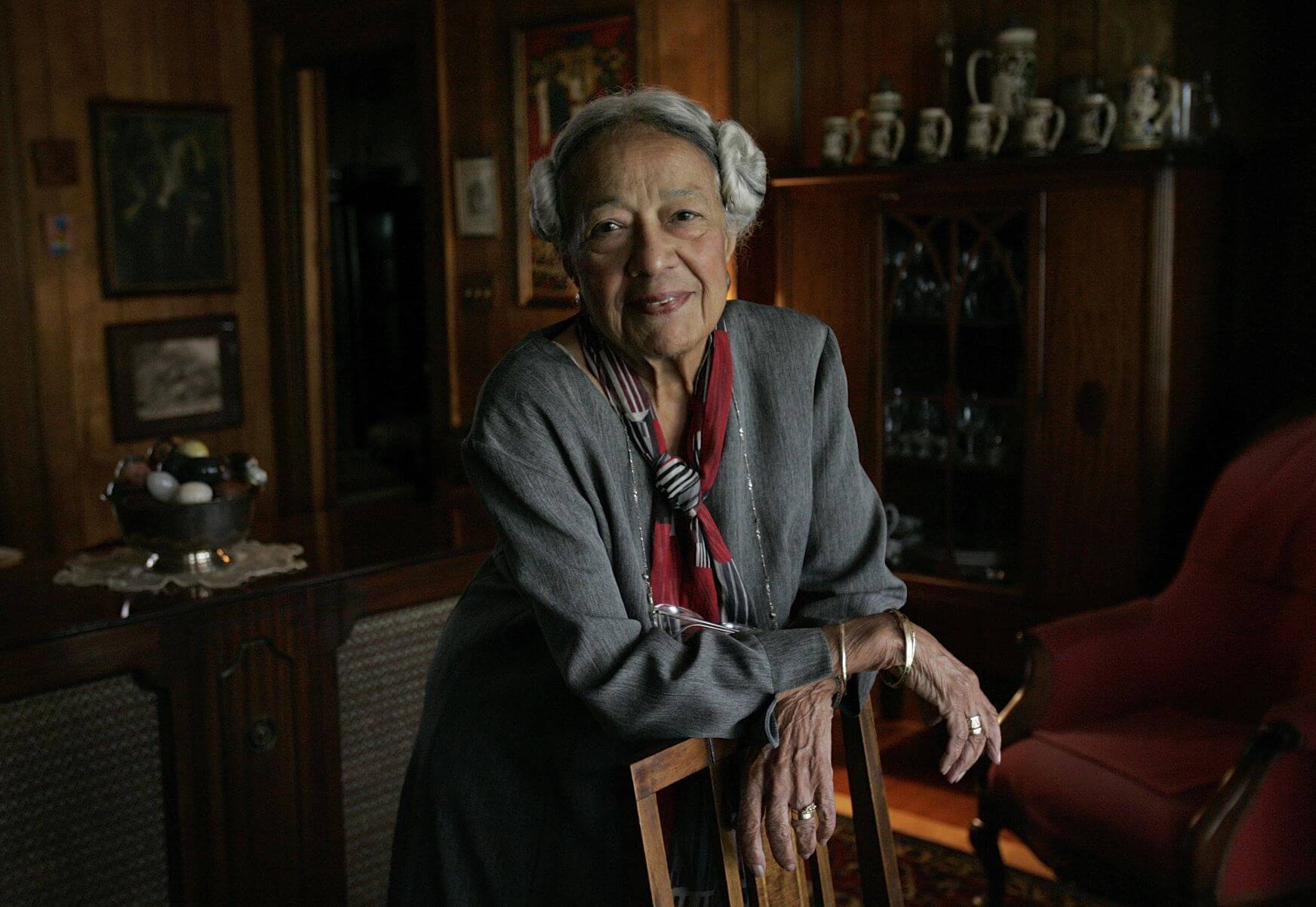Adelaide Cromwell
Adelaide Cromwell, the late sociologist who taught at Boston University and founded BU’s African American Studies program in 1969, documented and visualized the West End’s historic Black community in the 1800s.
Adelaide Cromwell was born in Washington, D.C. in 1919. Her father, John Wesley Cromwell, Jr., was the first Black certified public accountant (CPA) in D.C. Her aunt, Otelia Cromwell, helped raise her and was the first Black graduate of Smith College, in Northampton, Massachusetts. In 1940, Adelaide Cromwell earned her bachelor’s degree in sociology from the very same school, and received her PhD in sociology from Radcliffe College in 1946. Cromwell’s dissertation, “A sociological study of Boston’s African-American elites,” informed the thinking behind her book The Other Brahmins: Boston’s Black Upper Class, 1750-1950, published many decades later in 1994. Cromwell was a professor of sociology at Boston University from 1951 to 1985. In 1969 she founded BU’s African American Studies program in response to the civil rights movement and the assassination of Dr. Martin Luther King, Jr. in 1968.
In 1993, Cromwell published her analysis of the Black community in the West End during the 1800s. She pored through Boston’s city directories and tax records, as well as records of registered Black male voters (such as the list that George Ruffin collected in 1864, titled “New and Old Voters, First List After Emancipation”). Cromwell found that in 1860, out of the 2,261 Black people living in Boston, 1,395 of those Black residents lived in the West End – more than 60 percent. Black West Enders, living on the north slope of Beacon Hill, held many different professions, as laborers, sailors, barbers and hairdressers, tailors, waiters, servants, doctors, and ministers. Black ministers were important community leaders for the West End’s Black community, especially because of their leadership in the abolitionist movement. When most Black West Enders did not own their own homes (many lived in boarding houses), property owners were also seen as prominent figures in the neighborhood. One example for Cromwell was John P. Coburn, a clothier who owned multiple properties and co-founded the Massasoit Guards, a paramilitary organization which protected Boston’s Black residents from slave patrols. Some Black women were also property owners in the neighborhood, such as Chloe Russell, a cook and author of The Complete Fortune Teller and Dream Book in 1824.
Cromwell used the demographic data she collected to produce a map of the West End’s Black community between 1800 and 1864. Triangles on the map represent prominent Black male leaders between 1828 and 1864; circles represent registered Black male voters in 1864; and Black and white squares represent nineteenth-century Black and white institutions, respectively.
Cromwell’s visualization of the West End’s Black community in the nineteenth century is a useful guide to a more contextual history of Black life in Boston. Cromwell acknowledges some limitations of the map, such as many of the individuals listed in city directories not providing precise addresses (often only listing street names, intersections, or business addresses instead of residences). The names of streets in the area often changed during the nineteenth century, or some streets were paved over and re-routed entirely, another reason why precise markers are imperfect. Despite these limitations, Cromwell’s map demonstrates that the West End was especially significant when the Black community in nineteenth-century Boston was concentrated in just a few neighborhoods.
Cromwell passed away at the age of 99 on June 8, 2019, but her scholarship, particularly the map presented here, remains vital to understanding the Black history of the West End.
Article by Adam Tomasi, edited by Sebastian Belfanti
Source: Adelaide Cromwell, “The Black Presence in the West End of Boston, 1800-1864: A Demographic Map,” in Donald Jacobs (ed.), Courage and Conscience: Black & White Abolitionists in Boston (Bloomington: Published for the Boston Athenaeum by Indiana University Press, 1993) [Internet Archive]; Boston University; The History Makers; BlackPast; Association for the Study of African American Life and History; JSTOR











